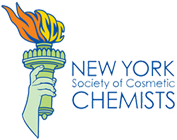As the quest for natural ingredients is growing, the interest in phyto-cosmetics is raising. Phyto in Greek means plant and phyto-cosmetics are products based on natural plant extracts or containing predominantly ingredients derived from plants such as polyphenols, vitamins, etc. Since I started working on ingredients development 15 years ago, I focused my attention on natural extract, especially those rich in active molecules, preferably from the same chemical family (1, 2). My grandfather introduced phyto-cosmetics in Italy in the early 30s and I read some of his early publications. In particular, I was intrigued by how he described the power of ingredients families or phyto-complexes when compared to single ingredients from the same family. In the late 50s he published together with my uncle, at the time a young chemist in Milano, a paper on beta carotene where he highlighted the capacity of carotenoids as a family to have a more powerful effect than single moleculebeta carotene on a series of skin benefit (beta carotene was used at the same concentration of the phyto-complex).
We know that plants are often mobilizing different isoforms, variants of same molecule to create a more effective and sophisticated response to a particular need. Molecule families are common, they often work in synergies and there are evidences that molecules belonging to the same family can protect each other against oxidation, so increasing stability of the phyto-complex. Phyto-complex is not a new definition neither a new concept, but I think the recent understanding of the importance of a multifactorial and synergetic approach when formulating a product for cosmetic applications has brought a renovated interest into this strategy and into phyto-complexes.
While in the last 50 years the approach to treatment was a reductionist approach based on single purified molecules (often compared to a plant extract with little efficacy), more recently a comprehensive approach based on plant extract fractionation and enrichment has proven to be as effective as single molecules, and often more stable in finished formulations. Phyto-complexes are also the basis of modern aromatherapy, where complex composition of essential oils showed therapeutic values to treat conditions associated to diseases (3). Moreover, studies have shown that encapsulation of polyphenols phyto-complexes were able to increase wound healing (4). Interestingly, when single molecules where combined with their phyto-complex, the complex acted as an enhancer to increase molecule bioavailability, and helping stabilizing the molecule itself (5). Numerous experiments have shown the phyto-complex superior to the single molecule in mechanisms meant to reduce inflammation, such autophagy (4) and apoptosis (5). Carotenoid such as lycopene was significant inferior in anti-oxidant activity when compared to tomato seed phyto-complex (6, 7).
Finally and intriguing, combination of phyto-complexes from different parts of the same plant was superior to single plant part extracts when used for healing (8). In conclusion, evidences exist to support the use of phyto-complexes instead of (or in combination) with single molecules from the same family. The use of phyto-cosmetics and phyto-complexes will grow in the next years as more experimental evidences on their stability and efficacy will be established.

Tomato Seed Oil (TSO) is superior to Purified Lycopene (Lyc) in inhibiting ROS production (Ref 8)
References
- Ebrahimi SN, Gafner F, Dell’Acqua G, Schweikert K, Hamburger M. Flavone 8-C-glycosides from Haberlea rhodopensisFriv. (Gesneriaceae). Helvetica Chimica Acta, 94 (1): 38–45, 2011.
- Germani F, Dell’Acqua G. An extract from blueberry processing by-product (press cake) inhibits blue light induced physiological changes and increases radiance in human skin, Poster IFSCC Milano, 2019
- Scuteri D, Morrone LA, Rombolà L, Avato PR, Bilia AR, Corasaniti MT, Sakurada S, Sakurada T, Bagetta G. Aromatherapy and Aromatic Plants for the Treatment of Behavioural and Psychological Symptoms of Dementia in Patients with Alzheimer’s Disease: Clinical Evidence and Possible Mechanisms. Evid Based Complement Alternat Med 2017:9416305, 2017
- Moulaoui K, Caddeo C, Manca ML, Castangia I, Valenti D, Escribano E, Atmani D, Fadda AM, Manconi M. Identification and nanoentrapment of polyphenolic phytocomplex from Fraxinus angustifolia: in vitro and in vivo wound healing potential. Eur J Med Chem 89:179-88, 2015
- Hasa D, Perissutti B, Dall’Acqua S, Chierotti MR, Gobetto R, Grabnar I, Cepek C, Voinovich D. Rationale of using Vinca minor Linne dry extract phytocomplex as a vincamine’s oral bioavailability enhancer. Eur J Pharm Biopharm. 84(1):138-44, 2013
- Lascala A, Martino C, Parafati M, Salerno R, Oliverio M, Pellegrino D, Mollace V, Janda E. Analysis of proautophagic activities of Citrus flavonoids in liver cells reveals the superiority of a natural polyphenol mixture over pure flavones. J Nutr Biochem 58:119-130, 2018
- Ettorre A, Frosali S, Andreassi M, Di Stefano A. Lycopene phytocomplex, but not pure lycopene, is able to trigger apoptosis and improve the efficacy of photodynamic therapy in HL60 human leukemia cells. Exp Biol Med (Maywood) 235(9):1114-25, 2010
- Müller L, Catalano A, Simone R, Cittadini A, Fröhlich K, Böhm V, Palozza P. Antioxidant capacity of tomato seed oil in solution and its redox properties in cultured macrophages. J Agric Food Chem 61(2):346-54, 2013
- van Vuuren SF, Viljoen AM. In vitro evidence of phyto-synergy for plant part combinations of Croton gratissimus (Euphorbiaceae) used in African traditional healing. J Ethnopharmacol 119(3):700-4, 2008
About the Author

Giorgio Dell’Acqua, PhD, is a cosmetic scientist and a consultant for the personal care industry. A graduate from the University of Rome, Italy, he worked for 15 years as an investigator in applied medical research in Universities such as Mount Sinai Medical School in New York and Harvard Medical School in Boston. Moving to the private sector in 2000, he has spent the last 19 years as an executive and cosmetic scientist in the personal care industry. He is specialized in skin and hair care ingredients, finished product development and technical marketing. He has helped bring more than 200 successful active ingredients and finished products to market and has authored more than 60 publications in medicine and cosmetic science. From last 10 years he has been writing and lecturing on natural cosmetic ingredients, sustainable supply chain, and helped sourcing, developing and bringing to market many natural ingredients. Some of his recent product development activity has focused on food by products to cosmetics, prebiotics and postbiotics to skin, and adaptogens for skin and hair care. He is an award winning speaker on natural ingredients and a regular columnist on sustainability and cosmetic science. He is also the chair of the Scientific Committee for the New York Society of Cosmetic Chemists and its scientific blogger.

